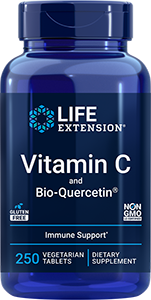 |
May 28, 2010 | Research suggests supplements may work better if started before old age | | Study results published in the online journal PLoS One indicate that consuming a combination of nutritional supplements before old age may be more effective than initiating supplementation later in life. Postdoctoral researcher Jinze Xu and colleagues at the University of Florida in Gainesville evaluated the effects of dietary enhancement with coenzyme Q10, creatine and ginseng on middle aged (21 month old) and late middle aged (29 month old) rats. The animals' ages correspond to age 50 to 65, and 65 to 80 years of age, respectively, in humans. Control groups of animals received unsupplemented diets. Paw grip strength, analogous to human physical performance, was evaluated after 4 weeks of supplementation, and mitochondrial function and other factors were measured at the end of the 6 week supplementation period. (Mitochondria are the cells' energy-producing organelles, whose function has been shown to decline with age.) Muscle mass decreased in both groups between the ages of 21 and 29 months. Grip strength and gastrocnemius muscle mitochondrial function were lower in 21 month old rats compared to an 8 month old control group; however, the decline was significantly less in animals who received supplemented diets. Twenty-one month old animals who received the supplement combo had 12 percent better grip function and 66 percent greater mitochondrial function than unsupplemented controls. These effects were not observed in animals who received the supplements beginning at 29 months of age, although reductions were observed in the increases in muscle RNA oxidation and mitochondrial protein oxidation and in the decrease in total urine antioxidant power which develop later in life. Although the authors suggest that the dosage and time period of administration of the supplements may have been insufficient to result in improvements in the older animals, Dr Xu remarked that "It is possible that there is a window during which these compounds will work, and if the intervention is given after that time it won't work."
"It's going to be very important to focus less on oxidative stress and biomarkers, and focus on having sufficient energy," noted Christiaan Leeuwenburgh, PhD, who is chief of the biology of aging division in the UF College of Medicine and the report's senior author. "If energy declines, then you have an increased chance for oxidative stress or failure of repair mechanisms that recognize oxidative damage — we're seeing that the health of mitochondria is central to aging." "People are catching on that using a single compound is not a good strategy — you have to use multiple compounds and target one or multiple pathways," he added. | |  |
| Catabolic wasting or cachexia is a clinical wasting syndrome that is characterized by unintended and progressive weight loss, weakness, and low body fat and muscle. At least 5% of body weight is lost. Cachexia is not caused by poor appetite and nutritional intake, but rather by a metabolic state in which a "breaking down" rather than a "building up" occurs in bodily tissues no matter how much nutritional intake occurs. Additionally, whether a patient receives nutrition orally or intravenously makes no difference. The patient simply cannot gain weight, so eating more is not an answer. It is estimated that half of all cancer patients experience catabolic wasting, with a higher occurrence seen in cases of malignancies of the lung, pancreas, and gastrointestinal tract. The syndrome is equally common in AIDS patients and can also be present in bacterial and parasitic diseases, rheumatoid arthritis, and chronic diseases of the bowel, liver, lungs, and heart. It is usually associated with anorexia and can manifest as a condition in aging or as a result of physical trauma. Catabolic wasting is a symptom that diminishes the quality of life, worsens the underlying condition, and is a major cause of death. A person at risk for developing catabolic wasting syndrome or who is already suffering from cachexia (tissue wasting) should consider the following supplements: - Glutamine, 2000 mg a day, available in capsule or powder form.
- Gamma-linolenic acid (GLA) 1200 mg, eicosapentaenoic acid (EPA) 500 mg and docosahexaenoic acid (DHA) 1300 mg daily.
- Conjugated linoleic acid (CLA), (76%) 2000 mg 2 times a day.
- Biologically active whey protein concentrate, 30-60 grams a day.
- Arginine, 10-20 grams a day in divided doses.
- L-carnitine, 2400 mg a day in divided doses.
- Multinutrient formula daily in divided doses.
- Consider growth hormone, DHEA, and/or testosterone replacement therapy.
- Branched chain amino acids, 1200-2400 mg a day.
|
|  | Velvet Deer Antler  | | Velvet Deer Antler has been used in oriental medicine for centuries to increase sexual desire and improve sexual performance. Body builders have used Velvet Deer Antler to boost stamina and help maintain muscle health. Deer antler is harvested from deer raised on ranches. At the ideal time of the year, the antlers are removed and specially processed to make the natural components bioavailable to the human body. Reports from the Orient, Russia, and New Zealand indicate that velvet deer antler has been used for centuries to support optimal health. | | |   |
| Fat-soluble vitamin C (ascorbyl palmitate) may be as important as water-soluble vitamin C, yet most vitamin consumers have not even heard of ascorbyl palmitate. If you take Life Extension Mix™, you are receiving an ample dose of fat-soluble ascorbyl palmitate. Each capsule of Dual-C contains 677 mg of fully reacted calcium ascorbate (gentle on the stomach and supplies calcium) and ascorbyl palmitate (to protect fat tissues from oxidation). | | | |  | | Life Extension Update | | What's Hot | | Life Extension Magazine® | |

